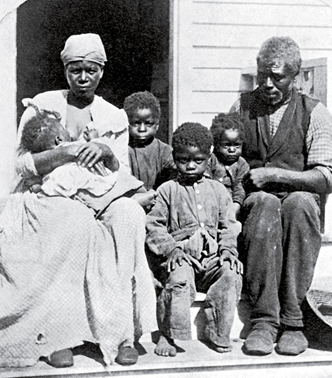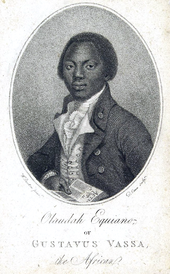The continental African presence in Jamaica largely stems from the Akan people in Ghana, underlined by cultural correlations, names, meals and assimilation.
‘Mumu’ derives from both the Ewe and Akan languages. Just like in Jamaican Patois, it is used to describe a dumb or a foolish person.
Dokunu is of African origin, used in Jamaica to describe a popular dessert cooked in banana leaves. Also called tie-a-leaf and blue draws.

via 247inafrica.com
‘Bafan’ is from the Akan language which can mean a child or helpless person or cripple. In Jamaican patois, it is used to refer to a person who hasn’t mastered simple skills that others have. Then there is Ananse (witty Spider) of Akan folktale character.
However, there is a significant Igbo presence in Jamaica. Courtesy of the Transatlantic Slave Trade, there were captured and enslaved Igbo people from Nigeria’s south-eastern port towns of Bonny and Calabar and found themselves on the island.
Circumventing the system, slave ships from Bristol and Liverpool ferried the bulk of enslaved Igbo people to the Island between 1790 and 1807, when the British passed the Abolition of the Slave Trade Act which outlawed the slave trade in the British Empire.
They were used as forced labour on plantations. They populated the northwestern section of the island around Montego Bay and St. Ann’s Bay and soon enough they registered an imprint on Jamaican culture regarding language, dance, music, folklore, cuisine, religion and mannerisms. In Jamaica, they are called “Red Eboe” or “Red Ibo,” because of their light skin. Igbo slaves were distinguished physically by their fair or “yellow” skin tones, a stereotype which persists to present-day Nigeria. Today, in Jamaica, “Red Eboe” is used to describe people with light skin tones with African features.

Jamaican Patois has seen an infusion of some Igbo words. They include:
Patois Language Original Word Description
Big-eye Igbo anya ukwu “greedy”
Breechee Igbo Mbùríchì Nri-Igbo nobleman
Door-mouth Igbo ọ́nụ́ ụ́zọ̀ (mouth + door) “doorway”
Chink, chinch Igbo chị́nchị̀ ‘bedbug’
Country ibo Igbo Ị̀gbò Pluchea odorata or Ptisana purpurascens
Akara (Jamaica) Akàrà (Igbo)– bean cake
Another influence is the yam festival, ‘Jonkonnu’ celebrated in Jamaica. Jonkonnu is a masquerade festival held in Jamaica which is attributed to the Njoku Ji or “yam-spirit cult”, Okonko and Ekpe of the Igbo. Natives also allege that the Ibu Town is named after the Ibo slaves.
The Igbo people are even credited with influencing the pouring of libation, according to The Guardian.
“From Jamaica’s history, the Igbos influenced the culture, music, the pouring of libation, the “ibo” style, idioms, language and way of life of the Jamaicans. The Jamaicans are so akin to the ways of the Igbos such that it is not uncommon to see Jamaicans watch Igbo Nollywood movies. Some of their rural areas take after the Igbo’s in Eastern Nigeria.”
The freedom loving Igbo slaves were reported to have maintained “unwritten rules of the plantation” of which the plantation owners were forced to abide by.
Regarding spirituality, Igbo culture is credited with influencing Jamaican spirituality with the introduction of Obeah folk magic; although enslaved Akan people might have introduced the art or system first.
There is Archibald Monteith, born Aneaso, an enslaved Igbo man taken to Jamaica after being tricked by an African slave trader who issued a journal about his origins and then there is the famous Olaudah Equiano alias Gustavus Vassa whose published autobiography, ‘The Interesting Narrative of the Life of Olaudah Equiano’ (1789) about the horrors of slavery received reasonable consideration.

Although noted as a prominent member of the movement for the abolition of the slave trade, he worked as an overseer on a Jamaica plantation owned by Dr. Charles Irving. His 1776 Mosquito Shore (Miskito Coast) scheme in Jamaica, for which Equiano hired Igbo slaves is contentious given he was an African-born Igbo ex-slave. Equiano is said to have knowledge of the Igbo language and used it as a tool to maintain social order among his Igbo slaves in Jamaica.
After the abolition of slavery in Jamaica in the 1830s, Igbo people also arrived on the island as indentured servants between the years of 1840 and 1864 along with a majority Kongo and “Nago” (Yoruba) people.
In Nigeria, Igbo people inhabit an area referred to as Igboland, which is divided into two sections along the lower River Niger. They live in most or all parts of five states: Abia, Anambra, Ebonyi, Enugu and Imo, as well as minor parts of Delta, Rivers and Benue states. Small Igbo communities are also found in parts of Cameroon and Equitorial Guinea.










